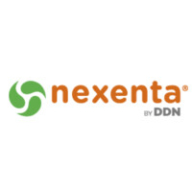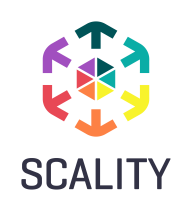


Nexenta and Scality RING compete in software-defined storage solutions. Scality RING appears to have the upper hand due to its superior scalability and resilience, appealing to large-scale data storage needs.
Features: Nexenta focuses on comprehensive data management, cost efficiency, and flexible deployment. Scality RING is recognized for extensive scalability, robust data protection, and reliable expansion.
Ease of Deployment and Customer Service: Nexenta provides straightforward deployment with responsive customer service, facilitating integration. Scality RING, while requiring more complex initial deployment, delivers intensive support catering to scalability needs.
Pricing and ROI: Nexenta generally offers lower setup costs, providing quicker ROI for smaller enterprises. Scality RING, despite higher initial costs, offers significant long-term ROI through scalability and data management, making it beneficial for extensive storage needs.
| Product | Market Share (%) |
|---|---|
| Scality RING | 4.0% |
| Pure Storage FlashBlade | 3.3% |
| Nexenta | 1.5% |
| Other | 91.2% |



| Company Size | Count |
|---|---|
| Small Business | 11 |
| Midsize Enterprise | 11 |
| Large Enterprise | 21 |
| Company Size | Count |
|---|---|
| Small Business | 3 |
| Midsize Enterprise | 1 |
| Large Enterprise | 12 |
FlashBlade is the industry’s most advanced scale-out storage for unstructured data, powered by a modern, massively parallel architecture to consolidate complex data silos (like backup appliances and data lakes) and accelerate tomorrow’s discoveries and insights.
Scality RING is the scalable and resilient object storage solution designed for modern workloads, providing seamless data protection against evolving cyber threats.
Scality RING leverages S3 object storage to meet unpredictable demands with a patented MultiScale Architecture that offers limitless scalability across capacity, performance, and more. It delivers end-to-end cyber resilience with CORE5 for ransomware protection, while its cloud-style economics and intuitive management empower enterprises to accelerate AI initiatives and optimize cloud deployments. Its flexibility is ideal for service providers managing extensive data needs.
What are the key features of Scality RING?Scality RING is extensively implemented in backup solutions across industries, supporting platforms like Veeam and CommVault. It aids in storage expansion and management of large data volumes alongside multi-site architectures. While not leading in AI spaces due to performance constraints, there's potential with faster disk support. It's also used in archives, binary lakes, multimedia services, and AI data lakes.
We monitor all Software Defined Storage (SDS) reviews to prevent fraudulent reviews and keep review quality high. We do not post reviews by company employees or direct competitors. We validate each review for authenticity via cross-reference with LinkedIn, and personal follow-up with the reviewer when necessary.